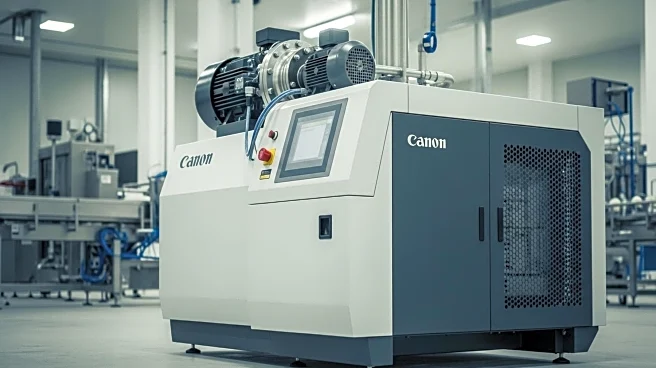What's Happening?
A major UK dairy desserts manufacturer has achieved substantial energy savings and improved production capacity by upgrading its compressed air system with Atlas Copco's latest oil-free technology. The investment has resulted in annual electricity savings of £117,000, alongside carbon reductions and enhanced compliance with food industry air quality standards. Previously, the manufacturer relied on aging compressors that posed risks to production capacity and required costly rental units during failures. The upgrade involved a comprehensive audit and installation of new compressors, dryers, and energy recovery systems, ensuring consistent air quality and reducing operating costs by over £200,000 annually.
Why It's Important?
The upgrade is significant for the dairy desserts manufacturer as it not only reduces operational costs but also strengthens its sustainability credentials. By adopting Atlas Copco's oil-free technology, the manufacturer eliminates the risk of oil contamination, which is crucial for maintaining product quality in the food industry. The energy savings and carbon reductions contribute to environmental goals, while the improved system provides a platform for future growth. This development highlights the importance of modernizing industrial systems to enhance efficiency, reduce costs, and meet stringent industry standards.
What's Next?
The upgraded system positions the dairy desserts manufacturer for future expansion, ensuring its products continue to meet high standards of safety and consistency. The integration of advanced monitoring and management platforms supports remote monitoring and Industry 4.0 integration, offering opportunities for further optimization and innovation. As the manufacturer continues to benefit from energy savings and improved production security, it may explore additional upgrades or expansions to further enhance its operations and sustainability efforts.
Beyond the Headlines
The investment in oil-free technology reflects a broader trend in the food and beverage industry towards prioritizing air quality and sustainability. By eliminating oil contamination risks, manufacturers can ensure product safety and quality, which is increasingly important in a competitive market. The focus on energy efficiency and carbon reduction aligns with global efforts to address climate change and environmental impact, showcasing the role of technology in driving sustainable industrial practices.









